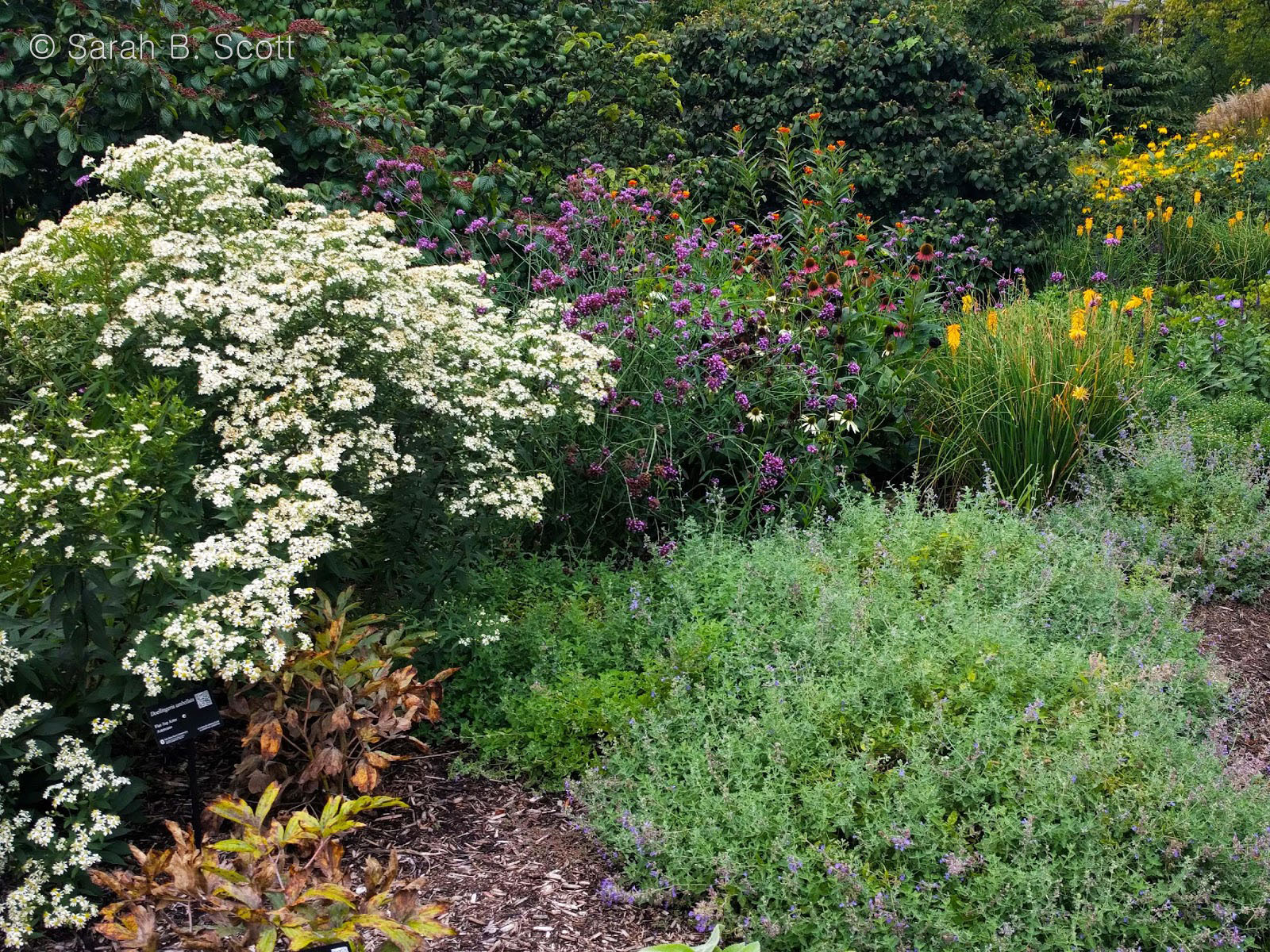Pollinator gardens
Pollinator gardens are a nice way to provision hungry pollinators with some food. If you live in an urban setting or have a small yard, then a pollinator garden might be the best style of pollinator planting for you.

The best pollinator gardens contain a diverse range of flowering plants. Just like us, pollinators need a varied diet to be healthy. Additionally, good plant diversity reduces pest problems. Pests are generally less attracted to diverse gardens. Diverse gardens support more natural enemies, which are insects that eat pests. Another trait of a great pollinator garden is overlapping bloom throughout the season, otherwise pollinators can have difficulty finding food at all times of the growing season.
Not only does it help to have a diverse garden, it is also advantageous to use native plants because they are most useful for native pollinators. Native plants that are well-adapted to your local environment don’t require much water or care. Another benefit of native plants is that they have deep root structures, which help prevent erosion of soil in your yard. One drawback is that native plants tend to cost more than other varieties. Another drawback is the initial time it takes for the flowers to establish. You likely won’t see a benefit from your native plantings for 2-3 years unless you buy plugs. However, perennial native plants will reseed themselves, giving you and native pollinators years of benefits.
When choosing plants for your pollinator garden, keep in mind that native plants are not the same as wildflowers. Wildflower seed packets may or may not be adapted to your local environment. You also want to avoid planting hybrids if your goal is to support pollinators. Hybrid varieties might be pretty, but most do not produce much nectar and pollen for pollinators to eat.
You should also be wary of the pesticides used on nursery plants. Nurseries mean well, but they might sell plants with systemic pesticides which can end up in pollen and nectar. Pesticide use may not be labeled. When in doubt, ask the nurseries or buy seeds without pesticide coatings instead.
Below is a list of resources to help you start your very own pollinator garden:
- MSU Native plants and ecosystem services
- Wildflowers and native plants: What's the difference?
- Native flowering plants that attract beneficial insects
- Attracting beneficial insects with native flowering plants
- Protecting and enhancing pollinators in urban landscapes for the US North Central region
- Gardening for pollinators: Smart plants to support pollinators
- Invite pollinators to your garden by creating a smart habitat
- Smart Gardening to support monarchs
- Smart Gardening for pollinators video
- Smart Gardening for pollinators webinar
- Bees of the Great Lakes region and wildflowers to support them
- MSU Master Gardener program
- Pollinator friendly plants for the Northeast United States
- Guide to creating a pollinator garden for native specialist bees of the Northeast
- Pollinator Habitat 101 webinar recordings from the Ohio State University
- Bee City USA videos playlist of pollinator habitats
Questions? Ask an extension expert for help